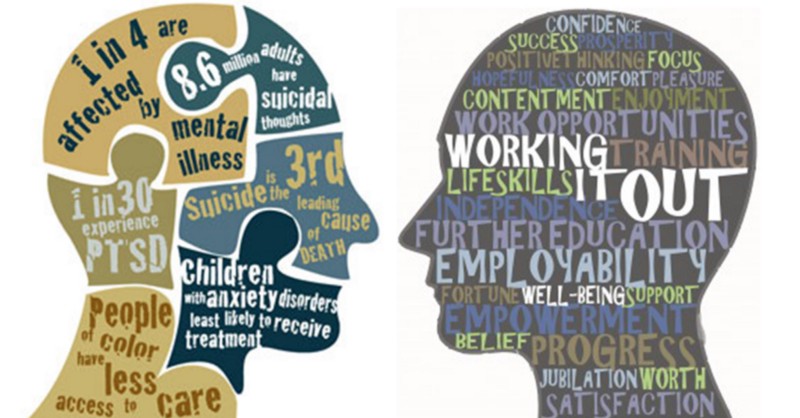Welcome to our special section, Thrive on Campus, devoted to covering the urgent issue of mental health among college and university students from all angles. If you are a college student, we invite you to apply to be an Editor-at-Large, or to simply contribute (please tag your pieces ThriveOnCampus). We welcome faculty, clinicians, and graduates to contribute as well. Read more here.
We are a generation obsessed with happiness. We lecture others on being happy; we post positivity quotes online for the world to take inspiration from; we cry silently in washrooms and walk out with a smile on our faces like all is well, knowing we are wrong. It’s ironic, and rather dangerous, how a generation so in love with the idea of happiness happens to be an increasingly depressed and disordered one as well. Then again, who are the disordered? And why are they like that?
Mental health awareness has slowly crept its way into our conversations and the news channels, words like schizophrenia aren’t Pig Latin to the masses, Mental Health Day is celebrated annually and we are beginning to acknowledge that there are people around us who have mental health issues. Yes, they may not be perpetually happy and they may need help, no, they aren’t being overdramatic and they definitely aren’t “psycho.”
It is interesting to notice how someone’s gastric issues are discussed loudly and with vigour in households but words like “depression” or “autism” are greeted with awkward silences and brushed off like dust. Going to therapy a few years ago was giving a shock to your family and friends, with very few understanding you whilst the rest just stared and assumed the worst. Imagine having to fight your inner battles on a daily basis and then stepping out and fighting with your surroundings as well, the neighbour, your colleagues, maybe your own family. Imagine the aftermath and the consequences, would you have overcome these battles?
Having such disorders doesn’t mean someone is just sad. With around 200 mental disorders and illnesses, how is it possible to attach such generalizations? Even with the 200 classified illnesses, each person is affected, reacts and fights back differently. Some isolate themselves from the things they love, some reach out to seek help, others bottle up their feelings until they reach a breaking point, a few just give up. Understanding them fully may not always be possible, helping them cope may be as hard for us as it is for them, but they are not just going through a phase and will get over it in a few days’, they deserve the recognition, they deserve the attention.
In a world where we are in a daily rush and always after something, we forget to pause, look around, and reflect. Although we have come a long way in terms of mental health awareness, the battle isn’t over. There was a time when I faced depression, and although I was lucky to have parents who understood me and stood by my side throughout, I still remember the tears, the anxiety, the isolation, everything. It was a difficult and sometimes downright torturous time, but years later as I try to do justice to something so close and personal to me, I realise that a healthy and happy mind is as important as a healthy body, and that reaching out to people who care can be the difference between overcoming and succumbing. Ask yourself and others these three simple words, “Are you OK?” Because if the answer is no, it’s high time to act upon it. For all you know, those three words may create all the difference in the world.
Subscribe here for all the latest news on how you can keep Thriving.
More on Mental Health on Campus:
What Campus Mental Health Centers Are Doing to Keep Up With Student Need
If You’re a Student Who’s Struggling With Mental Health, These 7 Tips Will Help
The Hidden Stress of RAs in the Student Mental Health Crisis


